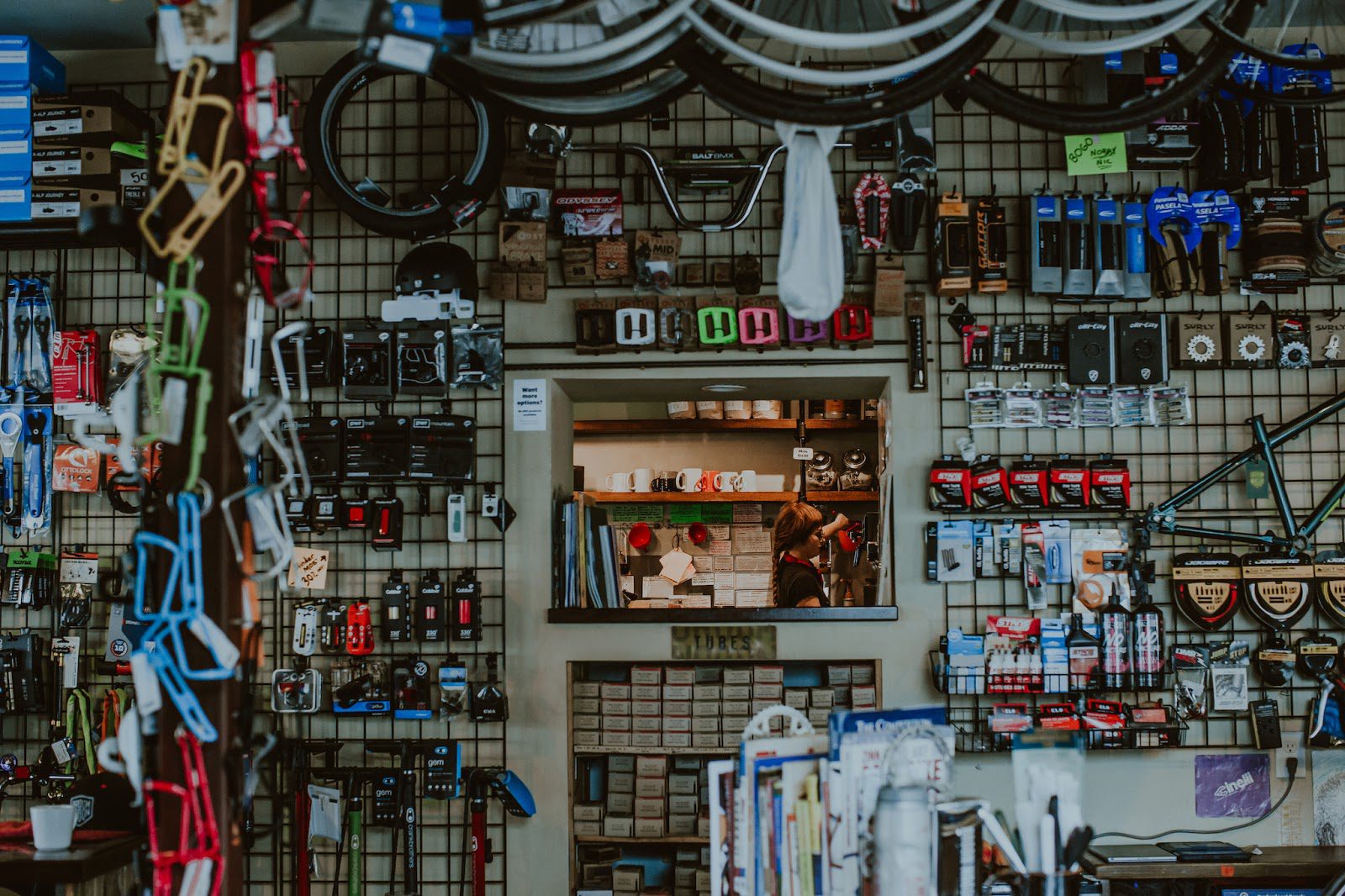21 days. Over 2,000 miles. The Tour de France is an incredibly demanding competition on every level, and yet riders have opted in since 1903. It’s no wonder that by 1910, organizers decided a vehicle needed to trail behind the bikes to help fix those broken down and pick up those who had gotten hurt or could not keep up. The vehicle was called voiture balai, or broom wagon. Fast forward to the twenty-first century, and that name has made its way to the other side of the Atlantic. It can now be found hanging above the entrance of a quaint bike and coffee shop in Lexington, Kentucky. Broomwagon aims to be an all-encompassing spot where customers can grab a bite to eat, enjoy a conversation, and wait together while their bikes are repaired. As co-owner Adam Drye reflects on the shop’s name, “that symbology, which we, funnily enough, picked up from the film The Triplets of Belleville, was sort of the perfect thing,” especially since their target clientele consists of “your commuter cyclist and your everyday person who’s just kind of interested in getting into it.” The website elaborates that it was “the perfect symbol of what we hoped to become for our local bike culture.”
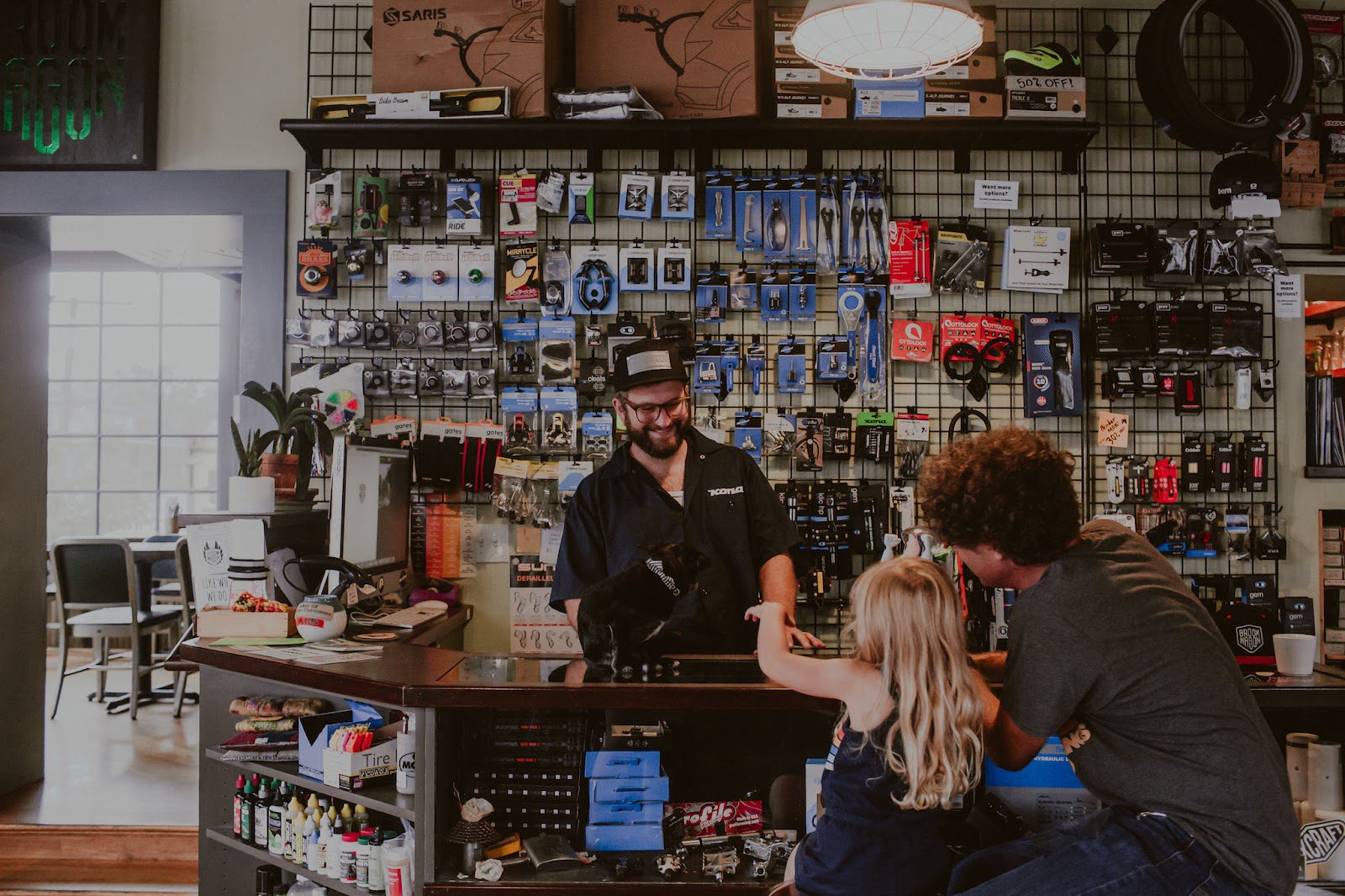
While Drye insists the idea for a joint bike and coffee shop is not an original idea, it cannot be denied that Broomwagon successfully carries its customers to the finish line. The bike shop is prepared to sell you a new bike or repair the one you already have, with services from individual part adjustments and installations to cleanings and tune-ups of the entire vehicle. Meanwhile, the café and coffee shop offers an impressive array of sandwiches, wraps, and “build your own sourdough sammies,” supplemented with seemingly never-ending coffees, teas, smoothies, milkshakes, and draft and craft beers.
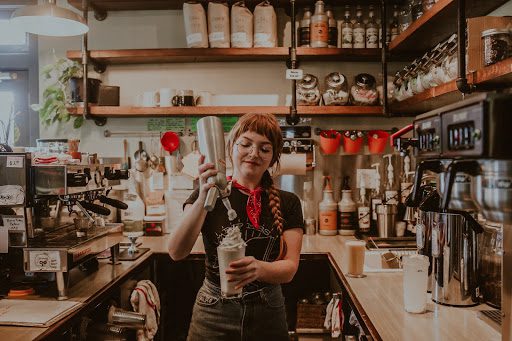
These two shops in one building and one “wonderfully symbiotic relationship” definitely keep Broomwagon busy, but that was kind of the point. Because “bike shops tend to have a lot of trouble in the winter,” and “a lot of trouble getting people who are uncomfortable in bike shops through their door,” Drye notes the café helps guarantee foot traffic. Equally important, this dual structure is vital to their efforts to serve their neighborhood; as Lexington cyclists themselves, the co-owners watched local infrastructure “growing enormously, but for the culture to grow, it really needed a hub, and that’s what we sought to be.” Before the pandemic threw a temporary wrench in the in-person model, “most of the time people were able to bring their bike, drop it with us, get some lunch, and we were able to fix it on the spot. . . You could sit at the bar while your bike was getting fixed and talk with the mechanic.” With rustic decor, exposed brick walls, plenty of sunlight beaming through large windows, the sound of bike repairs in the background, and of course free wifi, Broomwagon is ideal for a comfortable community center.
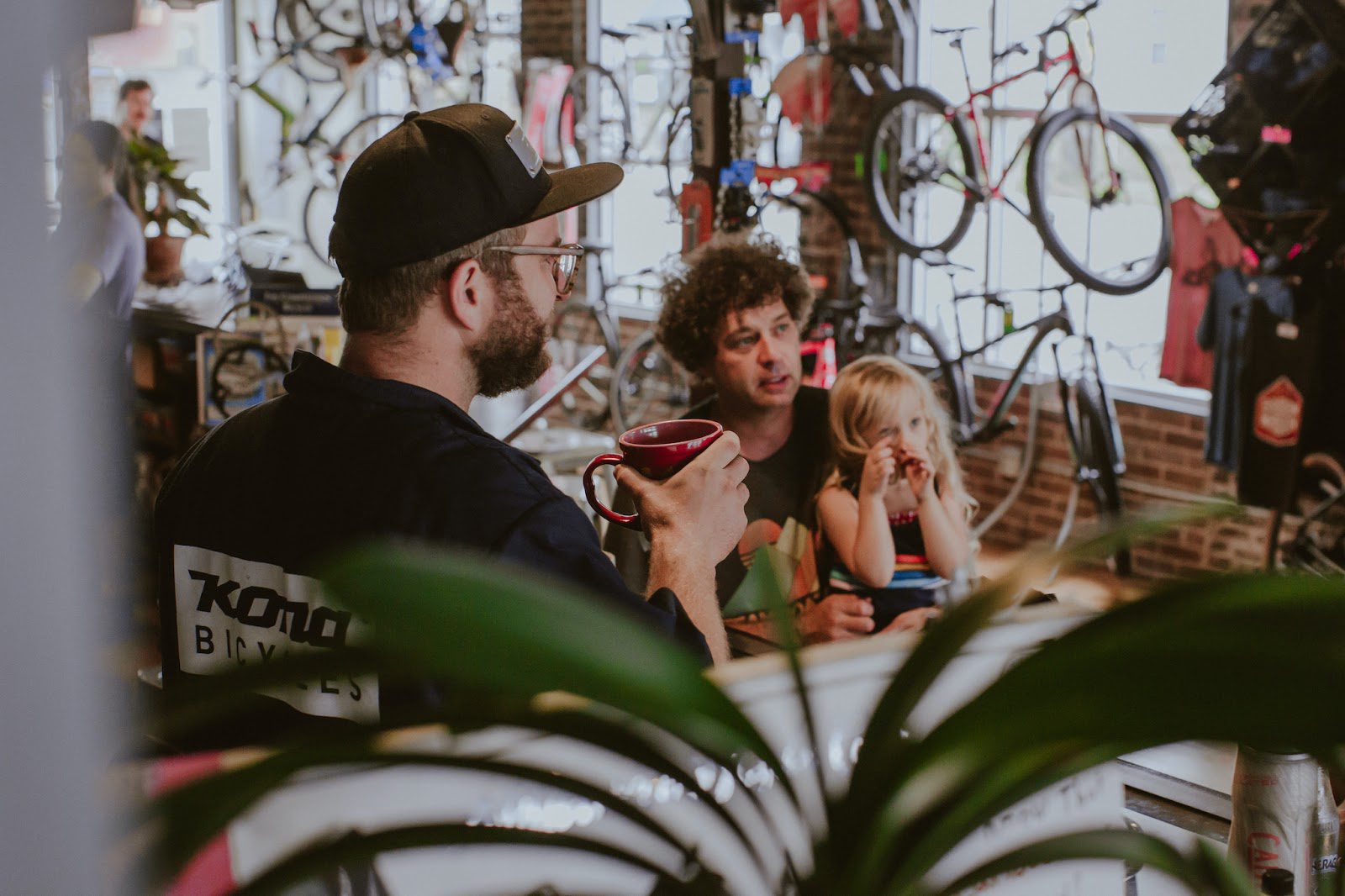
The shop is more than a social nucleus at which neighbors can gather, though; management also works very hard to give back to Lexington. Drye refers to this as “stewardship retail,” a term coined by Tobie DePauw from People for Bikes: “you’re not just selling a product, you’re in retail for the community and there’s all kinds of follow up after. . . over the course of that person being a cyclist.” For example, Broomwagon manages a Stolen Bike Registry with images and descriptions of the missing vehicles and a contact box to notify owners of recent sightings. However, the existence of the registry does not do justice to the extremely hands-on approach the shop takes in reuniting owners and their bikes by digging up old serial numbers for police reports and spreading information to local social media groups.
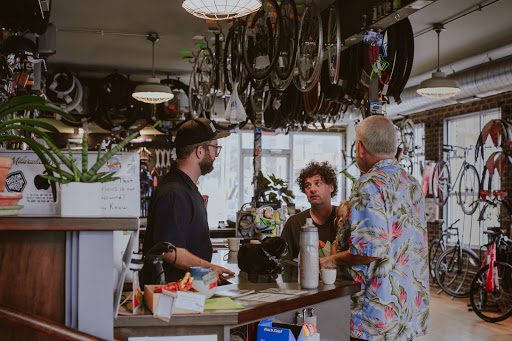
As a community-focused team, Drye and his co-owners understand their store is somewhat of a “stormtrooper of gentrification,” remembering that when they first moved into their location, there were very few nearby public-facing businesses. “We’re acutely aware of how rent has been rising, and we know the other side of that gentrification. So we definitely tried to have respect to that. . . we have to do something to combat that in a positive manner.”
Accordingly, philanthropy is another way Broomwagon has sought to serve those in the area. The venue often participates in Cranksgiving, a Thanksgiving food drive where participants bike to local grocery stores to supply nearby charities with holiday meals. They are also a Community Sponsored Agriculture (CSA) drop-off site, where community members can come every Thursday to pick up their weekly subscription from local farms; Drye describes this as a “really sustainable means for farmers to produce a pretty diverse crop and then not have to wonder what the market’s going to want. . . they just plant a bunch of stuff, and whatever does well, they split up amongst the people that are giving them a living.”
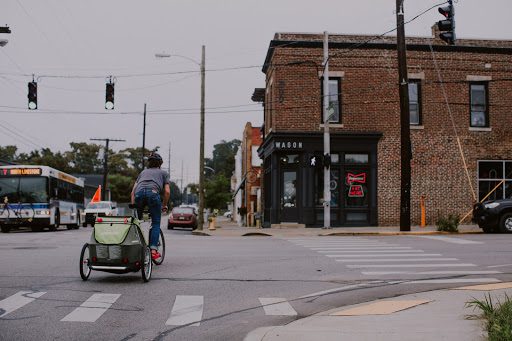
Broomwagon wants to have an impact beyond Lexington, too. The shop actively promotes sustainability education both to their own team and to their customers. Internally, they have a Comprehensive Sustainability Plan and workshops on composting and recycling for their employees; externally, they provide sustainability tips via an information board and a monthly newsletter. Drye insists because their café offers “a pretty sustainable menu with a lot of vegetarian and vegan-friendly options. . . we sort of attract that kind of group anyway, and it was sort of a byproduct of them being in our bubble.”
However, he seems far too modest, given their entire business is increasingly sustainable: inside, a majority of their lights are LEDs and toilets are water-efficient; in their courtyard, they collect rainwater in a barrel and grow cafe ingredients in an organic garden. They also compost through the organization Greenleaf and are innovative in their uses of old materials: for example, recycled wood was used to build their shelves and garden boxes. As a bike shop, they recycle scrap metal and rubber tires, have plenty of bike racks, and host a bike-to-work challenge for their employees every May. The shop also participates in local efforts, operating as a drop-off site for Live Green Lexington, some of whose initiatives have included collections of broken or unwanted Christmas lights, disposable plastic bags to be used by local students in an environmental competition, and political yard signs to be repurposed into a community art project and “Slow Down!” street signs.
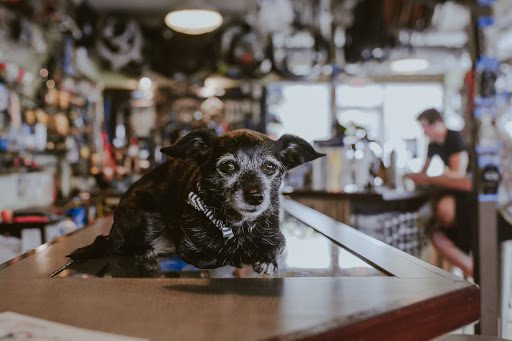
Broomwagon is living up to the origins of its name, helping those inside their community and beyond. Even though 2020 was their most successful year, with their workload on the bike side “roughly quadruple what it was pre-pandemic” and presenting the opportunity to launch a mobile van for at-home services, Drye still plugged for local bike shops, noting that not all are doing as well: “Your local mechanic in your local shop is such an important part of the equation of the entire supply line. . . they have such an important role in the local community.” This plug perfectly demonstrates the community-focus of Broomwagon; in the words of Drye, “You don’t start a bike shop to make money. They aren’t profitable, over one in three fail in their first three years. . . It’s always been about the community for us.”

